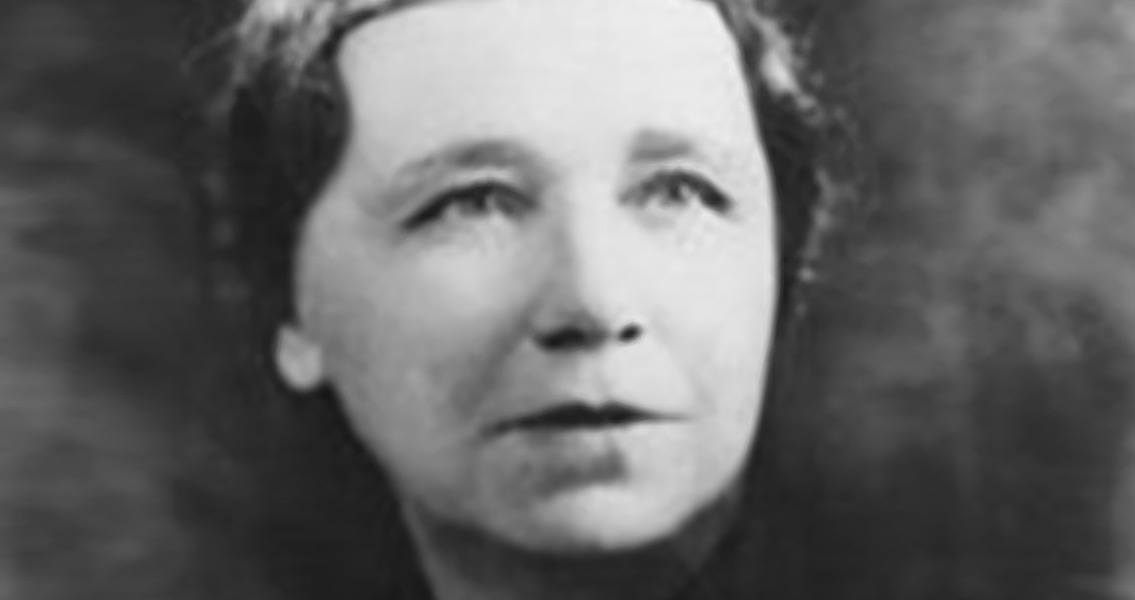<![CDATA[Hattie Ophelia Caraway was the first woman elected to the US Senate, on 12th January, 1932. Her political career proved to be a pioneering one. Following her election she became the first woman to preside over the Senate, the first woman to chair a Senate Committee meeting. and the first woman to preside over a Senate hearing. Other women had sat in the Senate before Caraway, but she was the first to be freely elected. Rebecca Latimer Felton was appointed to the Senate in 1922 to fill the vacancy left by the death of Senator Thomas E. Watson. Jeannette Rankin, a pacifist from Montana, was elected to the House of Representatives in 1917, becoming the first woman to sit in Congress. Born Hattie Wyatt near Bakersville, Tennessee, on 1st February 1878, the future senator was raised on a farm by her parents: William Carroll Wyatt, a shopkeeper and farmer, and Lucy Mildred Burch Wyatt. Hattie Wyatt attended the Ebenezer College in Hustburg, and the Dickson Normal College, gaining at Bachelors degree. Wyatt worked for several years as a school teacher before marrying Thaddeus Horatius Caraway, another graduate from the Dickson College. They settled in Jonesboro, in Thaddeus Caraway's home state of Arkansas. Hattie Caraway stayed at home and raised three sons, while her husband embarked on a law career and eventually entered politics. He rose quickly through the political ranks in Arkansas, serving as a prosecuting attorney before winning election to the US House of Representatives in 1912. Earning a reputation as a fiery orator, Thaddeus Caraway garnered increasing respect as a passionate voice on the issues affecting the USA in the years following the First World War. In 1920 he was elected to the first of two terms in the US Senate. As Thaddeus' career went from strength to strength, Hattie stayed away from the public eye. Accounts from friends and Thaddeus suggest however, that she had a role well beyond that of the dutiful wife. During Thaddeus' push to win election to the Senate, Hattie worked in his campaign headquarters, spoke on his behalf about the issues central to his campaign, and earned public praise from him as one of his most important advisers. Thaddeus Caraway died on 1st November, 1931, while still serving in office. A few days later, Hattie Caraway was named as the successor to his seat by Governor Harvey Parnell. "The office belonged to Senator Caraway, who went before the people and received their endorsement for it and his widow is rightfully entitled to the honor." Parnell explained, but the decision proved controversial. The Washington Post published an editorial condemning the appointment. "Mrs. Caraway should have been given the appointment on her own merit and not on the basis of sentimentality or family claim upon the seat." Hattie Caraway shocked the political establishment when she announced she would run for re-election following the end of the term she had inherited. She explained the decision to the media "The time has passed when a woman should be placed in a position and kept there only while someone else is being groomed for the job.". The Arkansas Women's Democratic Club threw its support behind Caraway, raising money for her campaign and building support. Just as significantly, Huey Long, a wealthy business man and Thaddeus Caraway's ally, threw his weight behind Mrs Caraway's campaign, hoping to boost his own presidential credentials by undermining his and Caraway's rivals in Arkansas. In the seven way Democrat primary in November, Caraway won 44% of the vote. In the general election she achieved a landslide victory, out-polling her Republican rival on a nine to one ratio. In the Senate she soon forged a distinct identity, one independent of her husband's. She backed the New Deal legislation of President Roosevelt, and was a firm supporter of veterans and the growing union movement. In 1943 she became the first woman in Congress to co-sponsor the Equal Right's Amendment. Although earning the nickname 'silent Hattie', based on accusations that she rarely spoke in Congress, she became a popular national figure due to her eloquence and wit. Her work for her constituents earned her particular respect. She secured $15 million to fund an aluminium plant in Arkansas, as well as a federal loan to fund the construction of a college in Arkansas. Caraway was reelected in 1938 for her final term. It was a fact which showed she had once and for all left the shadow of her esteemed husband, and become a formidable politician in her own right.]]>
Caraway Becomes First Woman Elected to the US Senate
